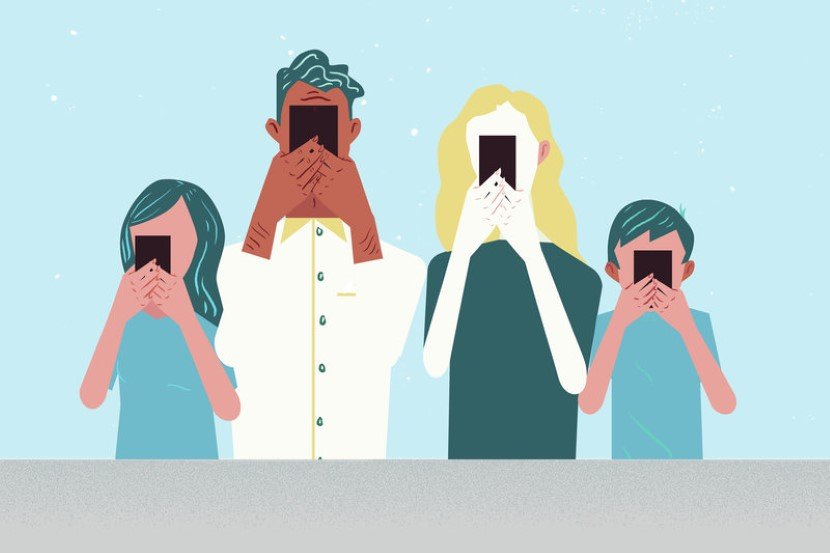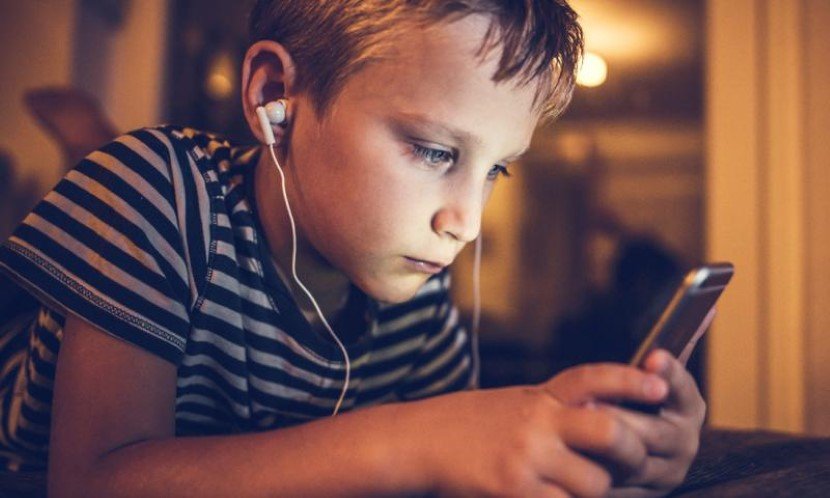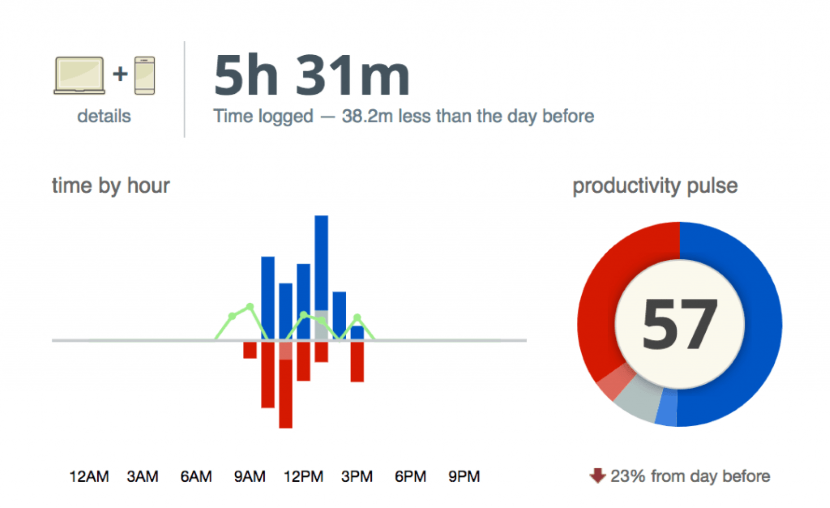Kids always on the internet? Here’s what to do about their screen time
 Image Credits: NPR
Image Credits: NPR
Being bound to our homes has rendered us bound to our screens. However, managing our own and our children’s screen time is essential as it can be detrimental to our health if not controlled.
Contents
The pandemic and its effect on prolonged screen time
Humans are social animals and require physical stimulation from other human beings to be able to live a healthy lifestyle. However, with the pandemic shutting down the educational institutions and workplaces, we all have shifted entirely to the world of technology. Major companies like Twitter, Ford and Google have announced work-from-home policies for their employees so they don’t have to go out and interact with people for tasks which can easily be accomplished from the comfort of their homes. Almost all schools are taking classes online and even plan to conduct exams in the same manner. From work and education to birthday celebrations, we have excessively increased the use of our mobile screens and laptops.
This has, however, raised genuine and legitimate concerns about people’s well-being. Excessive screen time has always been talked about as an unhealthy engagement. Multiple studies have linked screen time to mental health. A 2017 study states that “There were [are] higher odds of developing depressive symptoms among people who spend > 6 hrs per day in TV watching and computer use”. Another study produced that spending more than 4 hours a day in front of the TV and computers can lead to severe levels of depression. In case of children and adolescents, it is obviously worse. A study linking screen time and psychological well-being went as far as to say that kids between the age of 14-17 years, who had screen time more than 7 hours a day were twice as likely to be diagnosed with depression and anxiety or required some form of psychological treatment some time in their life. Even those with moderate usage (4 hours a day) were associated with lower psychological well-being. Excess usage of screens is also harmful for the eyes as it leaves them strained and often leads to long-term adverse effects.
Read here how blue light released from your gadgets affects your eyes.
Screen time today is survival
Experts today aren’t asking people to stay away from their phones, and even well-known organizations like World Health Organization and the American Center for Disease control and prevention have recommended people to sit in front of their screens as they work from home, in order to get rid of the mental stress of the current ongoing crisis.
We’re at a crucial moment in defining outcomes of this pandemic. Games industry companies have a global audience – we encourage all to #PlayApartTogether. More physical distancing + other measures will help to flatten the curve + save lives. https://t.co/QhX0ssN0lH
— Ray Chambers (@RaymondChambers) March 28, 2020
Screen time in the age of the coronavirus isn’t supposed to be considered as the same thing as it was before. Today, it is more of a way of survival than about wasting time. Adults are busy with on-screen work, and kids are taking lectures, doing homework and taking exams online. With people’s social lives getting very limited, their minds aren’t doing very well and this is precisely the reason why you shouldn’t be stressing over your internet usage right now.
Screen Time and Kids
As mentioned earlier, kids’ brains are more sensitive and susceptible to damage compared to adults; excess screen time, for kids, is obviously terribly bad and messes with developing brains. Normally, it is recommended that children should be minimally exposed to screens. However, today, kids taking hours of online classes and then video calling their friends or playing online games is a way for them to get their brains stimulated. “Parents, You Can Stop Feeling Guilty About Screen Time” is what PsychologyToday has to say about this. “I don’t want parents to beat themselves up about anything … These are really extraordinary, unusual circumstances and we don’t expect anyone — even before COVID-19 — to follow rules 100 percent”, says M.D., M.P.H. and Pediatrician, Nusheen Ameenuddin, who works at Mayo Clinic and is chair of the American Academy of Pediatrics council on communications and media.

But, should you just totally stop thinking about whatever you or your kids are doing? The answer is no. Want to know why? Read on.
Be Mindful of the Content
Whatever you’re doing in front of the screen counts greatly towards the affects the screen time will have on your mind.
Are you or your kid simply just binge-watching Netflix, Amazon Prime or YouTube, with breaks only to check your social media? Is your kid playing video games all day long? This probably isn’t a very healthy choice because as much as it offers you an escape from the COVID-19 stress, this will still be re-wiring your brain and it certainly will be far from being for the good.
Keep an eye on your online activities. Watching Netflix for a couple of hours is great for a crisis like this, but any longer won’t be healthy. “Spending an hour or two a day with devices during leisure time doesn’t seem to be harmful for mental health,” said Jean Twenge, author of “IGen: Why Today’s Super-Connected Kids Are Growing Up Less Rebellious, More Tolerant, Less Happy — and Completely Unprepared for Adulthood,” on her blog.
Discourage kids from continuous video games and encourage other online activities like playing mind games, talking to friends and drawing digitally. “The part that people don’t appreciate is that digital technology also has significant benefits,” is what Nick Allen, the director of the Center for Digital Mental Health at the University of Oregon, says. The internet has a wide range of things you can do, but nothing in extreme excess is beneficial. No one expects you to totally zero your usage of screens. It is almost impossible to live without the internet today, as the world is going online for every other activity. However, you still need to be attentive. The key here is to be conscious of what activities you are spending your time on, and the best choice is to be productive to keep your brain healthy. Michaeline Jensen who is a clinical psychologist and deals with adolescents and parent-adolescents says, “Ask your kids: ‘What are you doing on there? What makes you feel good? What makes you feel bad?’”
There are multiple websites and mobile applications that offer tracking of online activities. Some of these include RescueTime, WakaTime, ManicTime etc. These are great if you want to maximize your productive usage of your tech gadgets. RescueTime, for example, boosts the dopamine as it generates a “Productivity Score” for its users by the end of each day. Multiple studies also recommend using applications that filter blue light to ease your eyes. “… Start treating excess screen time with — and around — kids like we would [treat] smoking around kids” says John Staff, Founder and CEO of Getaway.

Life away from the screen
Despite people saying it’s okay to be in front of the screen more than usual today, quarantine period is still a great time to limit your screen time. Just because our options today aren’t as much as they used to be, it doesn’t mean we don’t have anything to do. Exercise, read books, spend time with your family, play indoor games, audio call your friends, cook for your family, or meditate. There are a lot of activities, but once again, be mindful of how you live and learn to balance all aspects of your life.